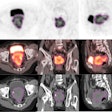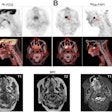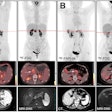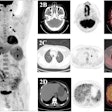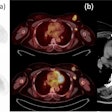The American Society for Radiation Oncology (ASTRO) and the Society of Surgical Oncology (SSO) have issued a guideline on margins for breast-conserving surgery after whole-breast irradiation.
The consensus guideline covers patients with stages I and II invasive breast cancer and includes eight clinical practice recommendations:
Positive margins, defined as ink on invasive cancer or ductal carcinoma in situ (DCIS), are associated with at least a twofold increase in ipsilateral breast tumor recurrence (IBTR). This increased risk is not nullified by delivery of a boost, delivery of systemic therapy, or favorable biology.
Negative margins (no ink on tumor) optimize IBTR. Wider margin widths do not significantly lower this risk.
The rates of IBTR are reduced with the use of systemic therapy. In the event that a patient does not receive adjuvant systemic therapy, there is no evidence suggesting that margins wider than no ink on tumor are needed.
Margins wider than no ink on tumor are not indicated based on biologic subtype.
The choice of whole-breast irradiation delivery technique, fractionation, and boost dose should not be dependent on margin width.
Wider negative margins than no ink on tumor are not indicated for invasive lobular cancer. Classic lobular carcinoma in situ (LCIS) at the margin is not an indication for re-excision. The significance of pleomorphic LCIS at the margin is uncertain.
Young age (≤ 40 years) is associated with both an increased risk of IBTR after breast-conserving therapy and an increased risk of local relapse on the chest wall after mastectomy and is more frequently associated with adverse biologic and pathologic features. There is no evidence that increased margin width nullifies the increased risk of IBTR in young patients.
An extensive intraductal component identifies patients who may have a large residual DCIS burden after lumpectomy.
Work on the guideline was made possible by a research grant from the Susan G. Komen Foundation. It underwent peer review prior to approval by the SSO Executive Council and ASTRO's board of directors in October 2013. In addition, the American Society of Breast Surgeons and the American Society of Clinical Oncology have both endorsed the guideline.
The guideline will be published in the March 1 issue of the International Journal of Radiation Oncology, Biology, Physics; the March issue of Annals of Surgical Oncology; and the March 10 issue of the Journal of Clinical Oncology.












